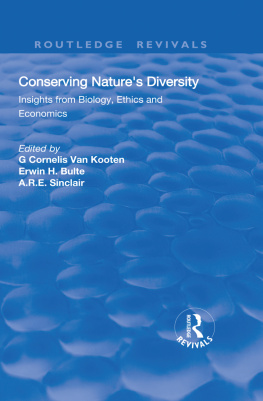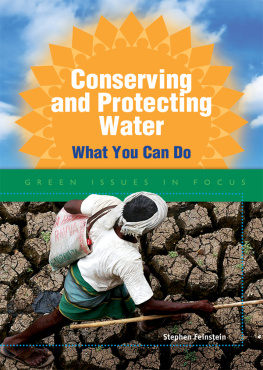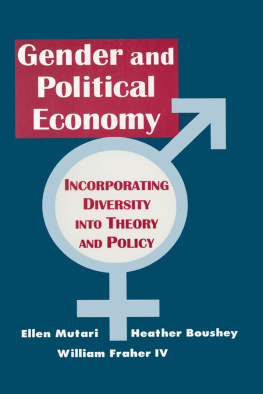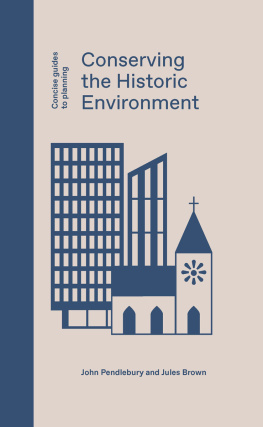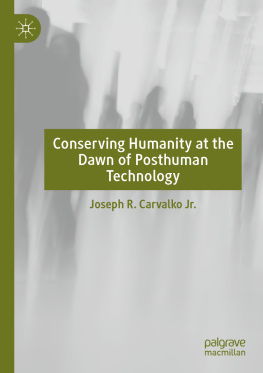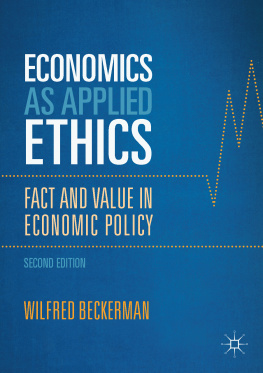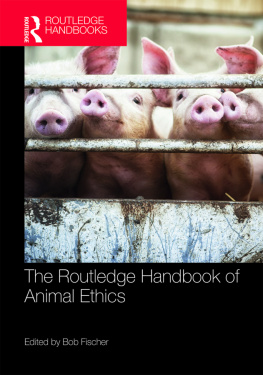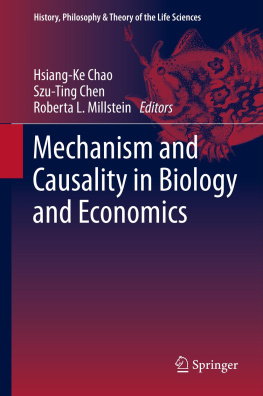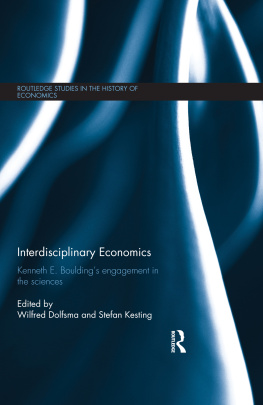Conserving Natures Diversity
First published 2000 by Ashgate Publishing
Reissued 2018 by Routledge
2 Park Square, Milton Park, Abingdon, Oxon OX14 4RN
711 ThirdAvenue, New York, NY 10017, USA
Routledge is an imprint of the Taylor & Francis Group, an informa business
Copyright G.C. van Kooten, E.H. Bulte and A.R.E. Sinclair 2000
All rights reserved. No part of this book may be reprinted or reproduced or utilised in any form or by any electronic, mechanical, or other means, now known or hereafter invented, including photocopying and recording, or in any information storage or retrieval system, without permission in writing from the publishers.
Notice:
Product or corporate names may be trademarks or registered trademarks, and are used only for identification and explanation without intent to infringe.
Publishers Note
The publisher has gone to great lengths to ensure the quality of this reprint but points out that some imperfections in the original copies may be apparent.
Disclaimer
The publisher has made every effort to trace copyright holders and welcomes correspondence from those they have been unable to contact.
A Library of Congress record exists under LC control number: 00132608
ISBN 13: 978-1-138-72674-1 (hbk)
ISBN 13: 978-1-315-19126-3 (ebk)
Contents
G. Cornelis van Kooten, Erwin H. Bulte, A.R.E. Sinclair
A.R.E. Sinclair
G.G.E. Scudder
A.R.E. Sinclair
Robert L. Pressey
Emina Krcmar-Nozic, G. Cornelis van Kooten, Bill Wilson
R. David Simpson
Roger A. Sedjo
Erwin H. Bulte, Daan P. van Soest, G. Cornelis van Kooten
G. Cornelis van Kooten
Lesley Jacobs
Guide
Dr. Erwin H. Bulte is Assistant Professor in the Department of Economics, Tilburg University, and in the Department of Economics and Management, Wagengingen University, both in the Netherlands, (e.h.bulte@kub.nl)
Dr. Lesley Jacobs is Associate Professor of Law & Society and Philosophy, York University, Toronto, Ontario, and was previously 1997-98 Liberal Arts Fellow, Harvard Law School, Cambridge, MA. (ljacobsglaw.harvard.edu)
Dr. Emina Krcmar-Nozic is a senior research associate with the Forest Economics and Policy Analysis (FEPA) Research Unit, University of British Columbia, Vancouver, BC. (ekrcmar@interchange.ubc.ca)
Dr. Geoff Scudder is Professor Emeritus in the Department of Zoology, University of British Columbia, Vancouver, Canada.
Dr. Roger Sedjo is Senior Fellow with Resources for the Future, 1616 P Street NW, Washington, DC, 20036 USA. (sedjo@rff.org)
Dr. Robert Pressey is a biologist at New South Wales National Parks and Wildlife Service, PO Box 402 Armidale NSW 2350 Australia. (bpressey@ozemail.com.au)
Dr. David Simpson is a Senior Fellow with Resources for the Future, 1616 P Street NW, Washington, DC, 20036 USA. (simpson@rff.org)
Dr. Anthony R. E. Sinclair is Professor of Zoology and Director of the Centre for Biodiversity Research at the University of British Columbia, Vancouver, Canada. (sinclair@zoology.ubc.ca)
Dr. G. Cornells van Kooten is Professor of Natural Resource Economics in the Faculties of Forestry and Agricultural Sciences, and Co-director of the FEPA Research Unit, University of British Columbia, Vancouver, Canada, and in the Department of Economics and Management, Wagengingen University, Netherlands. (gerrit@interchange.ubc.ca)
Dr. Daan P. van Soest is Assistant Professor in the Department of Economics, Tilburg University in the Netherlands. (D.P.vanSoest@kub.nl)
Dr. Bill Wilson is Director, Industry, Trade and Economics, Pacific Forestry Centre, Canadian Forest Service in Victoria, British Columbia, Canada. (bwilson@pfc.forestry.ca)
It is only appropriate that a book on the conservation of the earths biological diversity is published in the final year of the millennium (the new millennium actually begins in 2001). The past decade has seen unprecedented interest in, and concern about, the loss of species and human-caused destruction of ecosystems through, among other activities, tropical deforestation. Is this interest ephemeral? Are other events or crises likely to overshadow concern about biodiversity? Is the problem over-rated and likely to disappear on its own, for whatever reasons (e.g., as world population levels off, as developing countries become richer, as ethical viewpoints change)? Is there even agreement on the extent of the biodiversity-ecosystem loss problem and what might be done to resolve it?
This book seeks to answer some, but certainly not all, of these questions. The authors of the various contributions to this volume approach loss of biological diversity and ecosystem degradation from various disciplinary, experiential and ethical perspectives. Even within a discipline there is disagreement about the processes or causes of biodiversity loss, its importance, and what to do about it, but such differences are more pronounced across disciplines. This is readily seen by a careful reading of the various chapters that make up the volume. It is unlikely, therefore, to expect an easy resolution of issues related to biodiversity.
Yet, there are strands of agreement, places where the language of one discipline is understood by that of another. For example, biologists and economists remain divided, for the most part, about what the historical evidence on species loss means and how meaningful it is to project future species loss on the basis of the species-area relation. If these points are overlooked, and they can be, there appears to be remarkable agreement on human nature and the role of governments and markets, although such agreement is not always fully understood. Once a decision is made to protect certain ecosystems, agreement on how best to do so also appears to be forthcoming. Only the technical details need to be resolved, but this is a minor aspect of the larger problem.
The purpose of this volume is not to find common ground (although some is found), but rather to investigate and present the alternative inter- and intra-disciplinary viewpoints.
The original impetus for this volume came from a November 1997 workshop on the Conservation of Biodiversity: Merging Biological, Ethical and Economic Theory held in Vancouver, Canada, and sponsored by the Peter Wall Institute at the University of British Columbia. At the workshop, it became abundantly clear that disagreement about many issues remained. This led to further exploration of issues by the authors of the current volume.
The editors wish to acknowledge financial support for this project from the Sustainable Forest Management Network at the University of Alberta, and the Forest Economics and Policy Analysis Research Unit and the Centre for Biodiversity Research at the University of British Columbia.
Finally, this volume could not have come to fruition without the help of several people. The editors wish to acknowledge the contributions and technical support provided by Louise Arthur, Cynthia Suh, Connie Ho, Irene Wingate and Emina Krcmar-Nozic. It can only be hoped that this collection of papers will begin readers on the trek towards merging the ideas from a variety of disciplines involved in the protection of the globes valuable resources.
1
Introduction: Conserving Biological Diversity
G. CORNELIS VAN KOOTEN, ERWIN H. BULTE, A.R.E. SINCLAIR
Loss of biological diversity (or biodiversity) is considered one of the greatest threats facing humans today, subsuming such environmental problems as tropical deforestation and global demise of the fishery. The three primary and proximate causes of extinction of known species are over-exploitation, introduction of exotic species and habitat conversion. A possible future threat to biodiversity is global change as caused by ozone depletion and the greenhouse effect (Smith et al. 1995). Thus, it is humans, one way or another, who decide on which species will survive and which will not.

